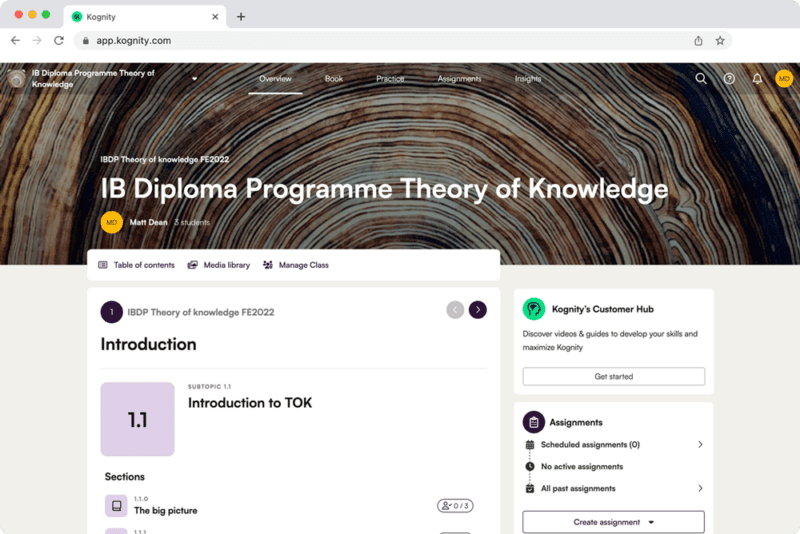David Spooner • 26/08/2025 • 4 min read
Every Teacher is a TOK Teacher: The IB DP Classroom as a Space for Inquiry
We often think of Theory of Knowledge (TOK) as a dedicated subject, taught in its own classroom, by its own specialist teacher. But what if we told you that the spirit of TOK isn’t confined to a single timetable slot? What if every single teacher in the IB Diploma Programme already embodies and teaches TOK, perhaps without even realizing it?
In our recent IB Unplugged podcast episode, David Spooner, a seasoned TOK expert and IB workshop leader, challenged conventional notions about TOK integration. His perspective offers a powerful shift: instead of constantly trying to force TOK into other subjects, we should acknowledge that TOK is already at the heart of every discipline.
The ‘How Do We Know?’ at the Core of Every Subject
David doesn’t believe in a separate “TOK-style thinking.” For him, there’s just thinking and not thinking. Thinking, he argues, involves continually asking the fundamental question: “How do you know what you claim to know?” This isn’t unique to TOK; it’s what defines good inquiry in any subject.
Integrating other subjects into TOK, for example, using chemistry experiments, historical events, or literary analyses as the stimuli for TOK discussions, highlights a crucial point: the content students learn in their subjects isn’t just data to be memorized; it’s a rich field for exploring the very nature of knowledge.
Think about why you chose your subject as a teacher, David challenges. Why did a biologist dedicate their life to studying zygotes, or a historian to ancient civilizations? It wasn’t just for facts; it was for the foundational concepts and the power of that knowledge to explain the real world. These “founding concepts” – whether in economics, natural sciences, or arts – are fundamentally where TOK lives.
From Concepts to Classrooms: Unleashing the Inner TOK Teacher
So, how do we “pull out” the inherent TOK teacher in every educator? David’s advice is surprisingly simple:
- Start Conceptually: Kick off your units by highlighting the underlying concepts your students will explore. Why is this topic important, beyond the exam?
- Rekindle the ‘Why’: Remember what first drew you to your subject. That spark of curiosity, that fundamental inquiry into how the world works through your discipline’s lens – that’s what we need to transmit.
“Zygotes in and of themselves are not really interesting things to study,” David quips, “But what does the study of Zygotes tell us about the natural world and the human relationship with the natural world?” This shift from factual recall to conceptual understanding is where the magic happens, allowing students to see the bigger things that we can all care about as humans.

Kognity: Supporting Holistic Knowledge Integration
At Kognity, we deeply resonate with David Spooner’s vision of integrated learning. Our Kognity for IB DP Theory of Knowledge (FE 2022) resources are designed not just for the TOK classroom, but to be a bridge that connects all subjects.
Developed by leading subject experts, our interactive textbooks and digital features emphasize these core concepts. The “Big Picture” sections provide that conceptual link that David describes, and prompt deeper inquiry from the very start of a unit. Kognity empowers subject teachers to:
- Easily find TOK connections: Our resources naturally highlight areas ripe for TOK discussion within specific subjects.
- Foster inquiry-based learning: By providing a structured yet flexible framework, Kognity encourages students to continually ask “how do I know?” about everything they learn.
- Save time: Our comprehensive resources mean teachers can focus on guiding discussions and fostering critical thought, rather than developing content from scratch.
By embracing the idea that every teacher is a TOK teacher, supported by resources like Kognity, students are empowered to become truly reflective practitioners, capable of understanding not just what they know, but how they know it, across every facet of their learning journey in the IB DP.
Blog articles




